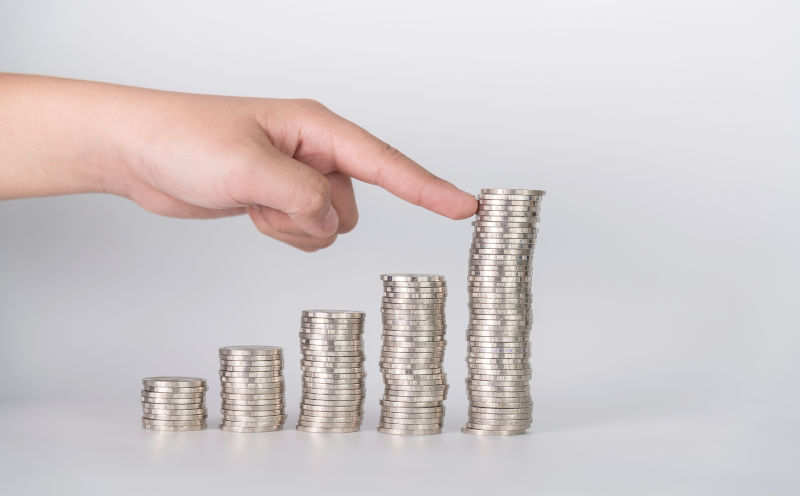The biggest threat to capitalism? Purveyors of mistrust
November 22, 2022
If social trust is good for society, and for the economy overall, why is such a decline in trust occurring? The simple answer is because some businesses make money from distrust.
On Sky News on 8 November, News Corp columnist Andrew Bolt attacked the COP27 summit. He described global warming fears as the latest excuse of socialists who hate capitalism.
Such rhetoric has a long tradition. In the 1920s, responding to early concerns about the health impacts of lead in petrol, Standard Oil described it as essential in our civilisation. In 1974, chemical industry leaders claimed those seeking to regulate CFCs were a real threat to the free enterprise system. In 1979, after the industry lied for years about the link between tobacco and lung cancer, the Tobacco Institute slammed critics as opponents of the free market system. In 2017, US conservative think tank Heartland Institute called concerns about global warming part of progressives war on capitalism.
With the wisdom of hindsight, many of these hysterics were clearly over the top. Capitalism did not collapse when lead was removed from petrol, nor when CFCs were banned, nor when tobacco was restricted.
But there is indeed a major threat to capitalism. A lot of people are losing trust that the system is treating them fairly. Commentators and vested interests are, in their campaigns, damaging social trust, and also trust in science.
Both capitalism and society generally have clearly benefited massively from advances in science over the past 200 years. Though less commented on, social trust has also played an important role in our progress. There are strong social benefits trusting societies have much better results on a range of social outcomes. For just one example, high trust societies had better outcomes in tackling Covid.
Social trust also has major benefits for the economy and capitalism. Robert Reich, US Secretary of Laborfrom 1993 to 1997, argued in 2016
Capitalism . . . depends on trust. Without trust, people avoid even sensible economic risks. They also begin thinking that if the big guys can get away with cheating in big ways, small guys like them should be able to get away with cheating in small ways causing even more people to distrust the economic system.
Reichs argument is well supported in the economics literature. Leading scholar Christian Bjrnskov surveyed the field in 2018. He found strong links between more social trust and higher income levels. And Czech researcher Roman Horvth concluded trust is indeed a vital determinant of long-term growth and countries with a higher level of generalised trust grow more. [Indeed] trust is one of the top determinants of long-term economic growth.
There are two main ways trust has such important economic effects. The first is it reduces what economists call transaction costs, or the cost of doing business. Profits, and investment, are higher if you dont have to spend lots of time and money checking whether other parties are honest or not. Secondly, people invest in their own education more if they believe a fair system will reward their efforts. If you think the system is rigged, why bother?
International comparisons confirm that richer countries typically have much higher levels of trust than poorer countries. However, there are significant differences between rich countries. And, in the case of the United States, there is good data showing declining levels of trust since the 1970s.
Since 1972 the General Social Survey run by the University of Chicago has regularly asked people a standard question on social trust. Generally speaking, would you say that most people can be trusted or that you can’t be too careful in dealing with people?
Source: US General Social Survey, graphed by author, using five year moving averages.
As the graph shows, the percentage saying people can generally be trusted has been falling since around 1980. Interestingly, while there are some variations from year to year, that fall has generally been greater under Republican Presidents (1980-92 and 2000-08) than Democrat Presidents.
So, if social trust is good for society, and for the economy overall, why is such a decline in trust occurring? The simple answer is because some businesses make money from distrust.
There are three key ways individual companies or industries can benefit from spreading mistrust.
The first is media companies that benefit from stirring controversy. Social media such as Facebook make money from advertising which grows the longer users spend on the site. ‘False news spreads on social media up to 6times faster than’truenews’,according to a 2018 MIT study. And a 2021 Harvard study found that tweets labelled misleading by Twitter actually spread faster than other tweets.
In October2021, Facebookwhistleblower Frances Haugenspoke to both Congress and CBS 60 Minutes. She revealed that Facebook hadadjusted its algorithmstofavourcontroversial and hateful content: “it keeps people coming back”.
The second group of companies are actively spreading mistrust of science and Government. These are companies such as fossil fuel companies, whose business model is threatened by scientific findings on global warming, and by looming Government regulations. Extensive research has shown the lengths the industry has taken to create mistrust of science and Government action. Often smearing their critics as Marxists intent on smashing democracy.
Thirdly, a broad range of companies have been increasing profits in recent years not through investment or innovation, but from getting special treatment from Government. This can be through tax cuts or through favourable regulation changes. Economists Joseph Stiglitz and Robert Reich have documented the massive growth of the lobbying industry in the United States. In 1968, only 100 US companies had public affairs offices in Washington DC; by 2000, corporations employed some 61,000 people to lobby for them.
The Economist has recently documented a world-wide trend of crony capitalism. And in Australia, the Grattan Institute has described similar trends.
The point for our story is the changing business focus. Profits from innovation and new products benefit from advances in science and social trust. In contrast, profit-seeking through special treatment is PR intensive. It gains little benefit in general education, science or social trust in fact, it much prefers as little scrutiny as possible, and benefits from spreading misinformation.
In these three ways, businesses have benefited from spreading mistrust. As indicated in the decline in social trust in the US over the last 40 years, such purveyors of mistrust are definitely having an effect. That also came home in alarming fashion recently in the widespread numbers of people damaging their own health by seeing Covid as a hoax, or refusing to take vaccines.
Such mistrust also has growing economic impacts. It reduces productive investment, and discourages people from furthering their education or starting business ventures. Both aspects lead to more people being left behind economically and socially which can become a social tinderbox.
So the next time you hear someone railing against the enemies of capitalism, perhaps you could ask them to take a look in the mirror.


